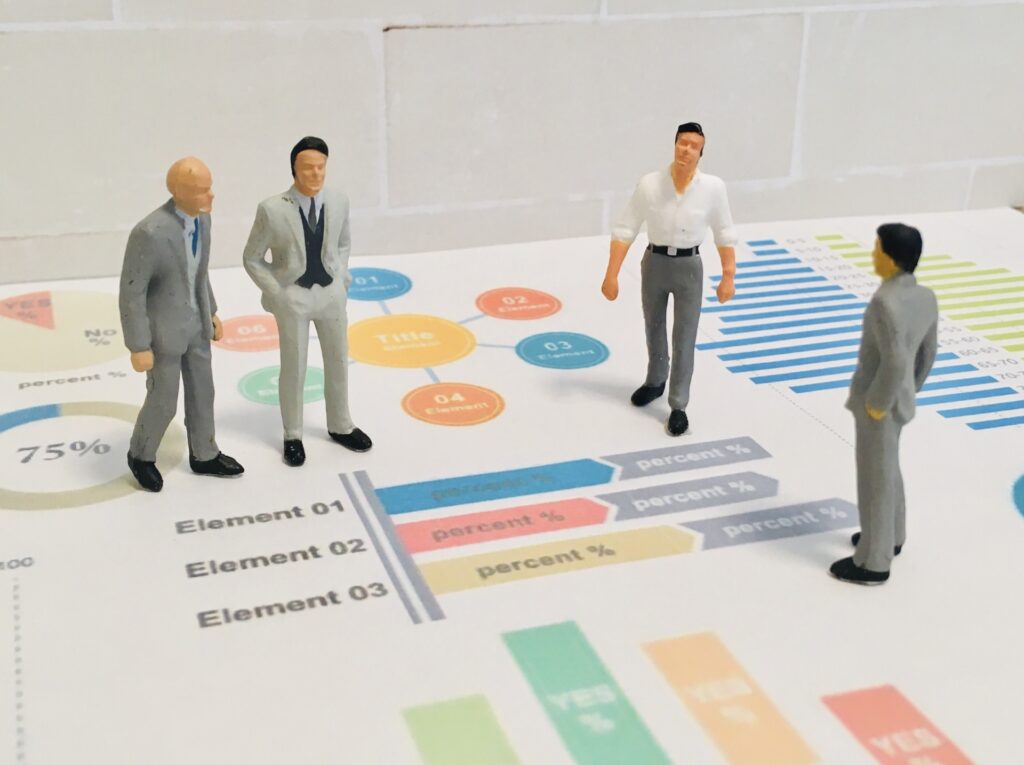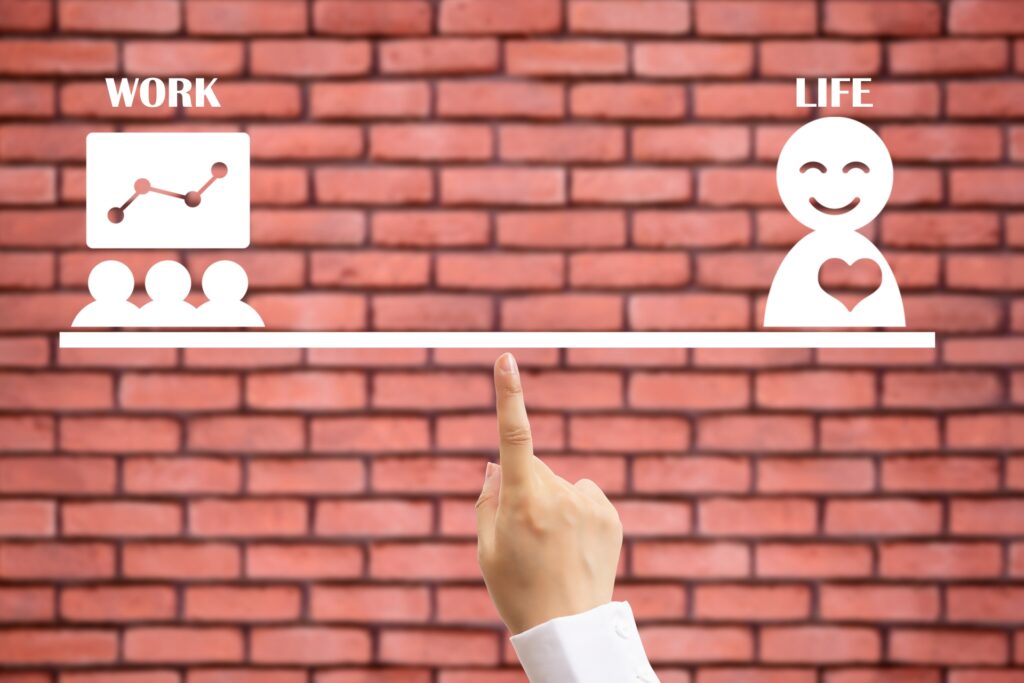The ILC community has ramped up its preparations ahead of the ILC pre-lab to be instated in 2022, and we’re moving closer and closer to the project becoming a reality. Maybe some of our readers are starting to imagine a future life in Japan? While it will be a global research facility, it will be located in Japan, and it’s only natural that many of our readers will start to wonder what it will be like to work in Japan… Especially since we’ve all heard the stereotype that the Japanese people work some long hours*.
Working in Japan
Japan has long been known as a workaholic society, with inflexible working hours and dangerous levels of overtime. There are unspoken rules to never take more time off than absolutely necessary and to never leave before the boss. Even after work, there’s a pressure to socialize with coworkers at local drinking establishments, leaving little free time or work-life balance. This style of work is really only tenable for people with spouses at home running the house, leaving everyone else behind.
The cultural norm is to work, work, and work some more – and yet, Japan has one of the worst productivity rates in the OECD. People die from the stress. It’s hard for working parents (especially women) to remain in the workforce. Young people are not interested in spending every waking moment at work. Clearly, something needs to change.
A buzzword in Japan in the last few years has been “hatarakikata kaikaku” or, working-style reform. The national government is keen to get more women in the workforce and to reduce the deadly levels of overtime. The whole point is to not just reduce hours, but to provide a number of different ways and styles to work, allowing for everyone to choose what’s right for them. Japan has two major challenges: a decreasing working population that can work (thanks to low birthrates and the greying of society) as well as the diversification of worker’s needs. In order to tackle that, they need to invest and innovate to improve productivity, expand employment opportunities, and create a working environment that can make full use of people’s desires and skills. By realizing a society that responds to the needs and circumstances of every laborer, and allowing them to choose from a variety of working styles, they hope to create a positive cycle of growth and diversification.
The government is currently enacting a number of different programs to solve the situation, ranging from putting limits on how much overtime can be done in a certain amount of time, to encouraging flex time and teleworking. The most difficult thing might be changing the culture of work in Japan itself, as so many rules are left unsaid. There’s the culture of “gaman” – of enduring discomfort with a smile. There’s the unspoken pressure to not be a burden on others and to help others who need it. In the West, it might be more common for bosses to leave the details to their underlings to figure out, whereas in Japan, rather than numeric performance metrics, there tends to be an emphasis on hours in the seat and frequent communication with bosses (often called “hou-ren-sou” which is an acronym for “report/communicate/consult.”) Changing these expectations will require a cultural reset of sorts, and may take some time.
Working in Iwate
The Iwate Prefectural government has tried to lead by example – they’ve implemented remote access of our systems so people can work from home, and have encouraged bosses to create an environment where people can go home on time. Executive directors encourage workers to plan vacation days in advance and to take longer breaks at one time. There’s also the “Kaeru no Hi” day, which is a convoluted pun that basically means “Today I’m going home on time.” In the future there are more IT-related strategies planned; such as remote desktop access and AI-based solutions for residents to interface with.
The prefecture is also encouraging companies in Iwate to reform their working styles and hours. There’s an Iwate Working Style Reform Promotion Support Center, a support desk, and consultants available for Iwate’s SMEs to talk to about changing up their work environments. There’s even an award for companies excelling in work environment reform
Working as a civil servant in Japan
From a personal standpoint, I’ve been working in Japan for over ten years at this point, and as a civil servant with the Iwate government for about 4 years now. My current post has me doing a job that’s no different from my Japanese coworkers. So I’d like to give a more anecdotal look at what it’s like to work in Japan like a Japanese person and what I’ve learned so far from it.
In fact, the biggest lesson I’ve learnt is:
Don’t work overtime!
Just joking. I almost always have things to do that keep me past quitting time, but even then I’m usually one of the first to leave my office. But this is the kind of job where there will always be more to do, and I learned that it’s important to strike my own balance between work and play.
In my first year in my new division, I tried to do as much overtime as I could, to prove to my coworkers that I could do the same job as they could (and also because there was so much I didn’t know how to do so it took me forever to get things done). But I still couldn’t imagine staying until the wee hours of the night. During my first review with my boss, I told him that my hard limit was 8pm at night, and that I would certainly go home after that unless absolutely necessary for a deadline or something.
“Striking a balance between work and life! That’s great!”
So anyway, after my first few months of doing a bunch of overtime, I predictably started to feel a bit blue. Luckily we entered a lull period at work, and I got better at various things so I naturally needed less overtime to get things done. But even in the future, I think it will be difficult for me to do that kind of overtime again.
Nobody has seemed to have a problem with that. I get work done by the deadline, and I think I luckily just have less on my plate than other people do. I also find myself working faster and more efficiently when I have sufficient rest and free time, so really, working chronic overtime would just make my productivity suffer.
I do feel a sense of guilt when I go home while everyone else is still working. I get the sense that there’s definitely more for me to be doing, that I’m not proactive enough, that I’m lazy, that I don’t contribute to the workplace as a whole… But it’s not as if anyone has ever said that to me. It’s just ingrained in me from years of working in this environment. For right now, I get everything that MUST be done done, and everything else progressing in a timely manner. We’ll see how far that gets me!
I’m only talking about working in a civil servant environment, and private businesses and academic are a whole different beast so I can’t speak to that. But I have noticed the push to reduce overtime in the past few years, as well as an increase in flextime and remote working (especially since COVID-19 appeared). In a lot of ways, Japanese culture seems to be ready to make the shift to a more balanced working style. Perhaps having the ILC in Iwate will bring us into more contact with different working styles, and accelerate new change.
Japanese
日本の過労社会における新たなトレンド?岩手県における働き方改革についてご紹介します
2022年のプレラボ設置に向けて、ILC関係者の間で準備が加速しており、ILCの実現がますます近づいてきているような気がします。ILCは国際的な施設になりますが、日本に建設されるわけで、読者の中には、近い将来の日本の生活について想像している方もいるかもしれません。その中、日本で働くこととはどういうことだろうか、気になっている方もいるかと思います。日本人が長時間働いているイメージが強いですが、実際どのような環境なのか、現場からリポートをしたいと思います。
日本での働き方
長い間、日本は働きすぎ社会として知られており、勤務時間外に勤務している方が少なくありません。また、最低限の休み以外に休みを取らず働くこと、上司より先に帰らずに働くことなど、暗黙のルールがたくさんあります。仕事が終わっても、近くの飲食店で同僚と飲むことが多いなど、自由な時間がなくワークライフバランスをとることが非常に難しいです。このような働き方は、家事など仕事以外のすべてをいつも家にいる配偶者に任せられる人はなんとかなりますが、そうでなければ、非常に苦しい状態です。
日本の文化では一生懸命に仕事をすることが望ましいとされ、働く時間が多ければ多いほど「一生懸命に働いている」ように見えているかもしれません。しかし、日本の労働生産率はOECD諸国の中で低い状況にあります。過労死が問題です。共働き世帯(特に母である女性)ではなかなか出世できず、仕事自体が継続できないことがあります。若い人は、すべての時間を仕事で尽きることをしたくないのです。社会を変える必要があるように感じられます。
最近の流行語は「働き方改革」です。日本政府は、女性の参画を増やし、残業レベルを減らすため、様々な政策を実施しており、働き方改革を目指しています。「働き方改革」は、働く人々が、個々の事情に応じた多様で柔軟な働き方を、自分で「選択」できるようにするための改革です。⽇本が直⾯する「少⼦⾼齢化に伴う⽣産年齢⼈⼝の減少」、「働く方々のニーズの多様化」などの課題に対応するためには、投資やイノベーションによる⽣産性向上とともに、就業機会の拡⼤や意欲・能⼒を存分に発揮できる環境をつくることが必要です。働く方の置かれた個々の事情に応じ、多様な働き方を選択できる社会を実現することで、成⻑と分配の好循環を構築し、働く⼈⼀⼈ひとりがより良い将来の展望を持てるようにすることを目指します。
そのため、政府が様々な施策を企画しており、一定期間における残業時間に上限を求めることや、フレックスタイムやテレワーキングの普及等を促進しています。
しかし、暗黙のルールがある日本では、就労文化そのものを変えることは、最も難しいことかもしれません。「我慢」の文化があり、周りに対して、迷惑をかけず手助けをしなければならないという暗黙のプレッシャーがあります。
西洋では、上司が部下のやり方に任せることが主流ですが、日本では、数値上の実績より、上司との頻繁なコミュニケーション「ホウ・レン・ソウ」を行い、席に長く座っていることが働いているように評価される職場があります。
このような期待を変えるためには、文化的なリセットが必要であり、時間がかかるかもしれません。
[写真1]
岩手の働く環境
岩手県は模範を示して、働き方改革を先導しようとしています。在宅勤務ができるようリモートアクセスの仕組みを導入し、定時で帰る環境づくりを各所属にて実施されています。
所属長は、各職員に対し、休暇を事前に申請して、その休みがあることを踏まえて仕事のスケジュールを組むように指示しています。また、まとまった休みを取るように指示しています。さらに、「か・えるの日」が設けられ、週1回定時で帰るように県庁内の運動があります。将来は、リモートデスクトップアクセスやAIによるシステム導入など、ITベースの事業が企画されています。
また、県内の働き方改革を促進するため、いわて働き方改革サポートデスク、岩手働き方改革推進支援センター、働き方・休み方改善コンサルタントを、県内の中小企業に提供しています。働く環境の改善に努めている企業を表彰する制度もあります。
地方公務員としての経験談
私自身についていえば、10年以上日本で働いており、岩手県の正規職員になってから約4年が経とうとしています。現在の担当業務は、日本人の同僚と同じものです(外国人向けの仕事ではないです)。そのため、「日本人らしい」働き方をしている私から、経験談と教訓を少し紹介したいと思います。
最も大きい教訓は:
残業するな!
もちろん、それは冗談です。普段は、いろいろ仕事があって、定時に帰ることがほとんどありませんが、それでも、職場の中から先に帰るほうです。でも、公務員の仕事は、基本的に終わりがないものです。
最も大きい教訓としては、仕事とライフのバランスを自分自身でしっかりと取ることが大切だということです。
[写真2]
新しい部署に異動して最初の1年間、私はできるだけ多くの残業をして、日本人の同僚と同じレベルで仕事ができることをアピールしようとしました。(また、慣れていない業務ばかりで、知らないことがたくさんあったからこそ、普通に仕事をこなすのにとにかく時間がけっこうかかるものでした)。
それでも、夜遅くまで残ることもあまり想像できませんでした。上司との面談のときに、特に締め切り等がなければ、絶対に20時までに帰ると誓いました。
「メリハリ!」
それで、残業をたくさんやって数か月後、やはりと言うべきか、ちょっと調子を落としてしまいました。
幸い、そのころから仕事がだいぶ落ち着いてきて、業務のあらゆる部分について自然に慣れてきたので、あまり残業というものをしなくても仕事をこなすことができました。でも、今後は、それほど多くの残業をすることは難しいと思っています。
現在は、明日までに提出しなければならない仕事を今日中に終わらせて、他に必要な仕事を着々と進めていますが、それ以上のことについては、残業をしないようにしています。
これまでに、特に問題は生じていません。幸いなことに、同僚に比べて担当している業務が少ないことがあるのか、期限を守って仕事をしています。
また、十分リフレッシュができたら、仕事のペースが速く、効率的に仕事をこなせるので、慢性的な残業をするようになったら、仕事のペースが遅くなるだけだと思います。
しかし、同僚より先に帰る度に、まだ後ろめたさを感じています。他にやることがないのか、もっと積極的になればいいのか、この職場に貢献していないのか…。
別に周りの人がそのように言っているわけではありません。何年も日本の職場にいるからそういう感覚が染みついたのだと思います。
でも仕事というのは、短距離走ではなくマラソンです。やらなければならない仕事を全部こなして、そしてそれ以外の仕事をコツコツと進めることができるのであれば、残業が少なくてもいいかなと思います。
今までの話は公務員に係る話で、民間企業や学術関係では違うかもしれません。でも、日本のあらゆるところでは、残業を減らす運動やフレックスタイム・テレワークの普及が見られています。(特に新型コロナウイルス感染症の出現以降)
ILCで働くことと岩手県庁で働くことは比べ物になりませんが、基本的に、日本文化はそろそろバランスのある働き方にシフトしようとしていると感じています。岩手にILCができたら、様々な働き方を観測する機会となり、さらに働く環境が改善されるように、働き方改革が加速するような気がします。





